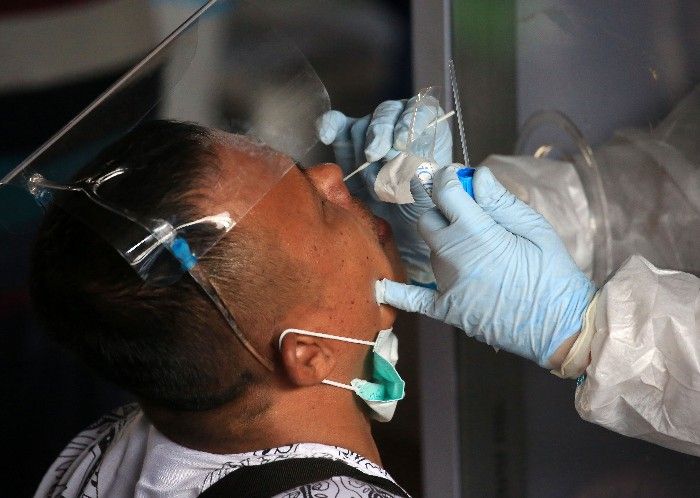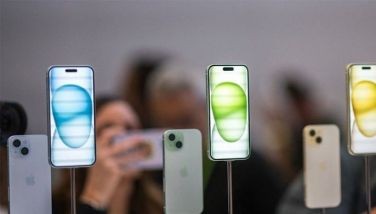No more swabbing? Saliva specimen for COVID-19 testing eyed

MANILA, Philippines — Having oneself checked for the SARS-CoV-2 is not the most pleasant experience despite the relief from a negative result.
RT-PCR testing, acknowledged as the most credible process to check for coronavirus in patients, relies on swabbing the nasopharyngeal part that connects the nose cavity and the palate. The swab method causes discomfort to individuals and poses a slight risk to healthcare workers administering the test.
Recent developments, however, may allow saliva specimens for the RT-PCR test.
In a limited study citing nine clinical surveys published in July in a peer-reviewed science journal, three Iranian researchers found that the use of self-collected saliva as a non-invasive specimen as accurate and reliable in detecting SARS-CoV-2 using the RT-PCR technique.
If further proven effective and validated by health authorities, there will no longer be a need for an RT-PCR extraction machine. The process, moreover, is less invasive and can help overcome some Filipinos' reluctance to get tested.
Presidential Adviser for Entrepreneurship Joey Concepcion, who has been supporting testing innovations from other countries, said at a recent press briefing that he is looking to back a study exploring the use of saliva for testing.
“If that research shows that saliva is as sensitive or even more sensitive than swab testing, then that would be another game-changer,” he said.
There are ongoing clinical studies exploring the viability of saliva samples as a low-cost alternative to conventional swab-based molecular tests.
Concepcion's team also said that a new method also has the potential to reduce the cost of the RT-PCT tests as it eliminates swabbing. It can also expand the use of molecular tests where healthcare resources are limited.
"The direction is to make testing faster, cheaper, and more convenient to people," Concepcion said.
"Whatever innovation is coming out, we are not closing the doors...These are good signs that we are really moving for innovation, for speed. That is the only way that we can open the economy safely," he added.
- Latest
























